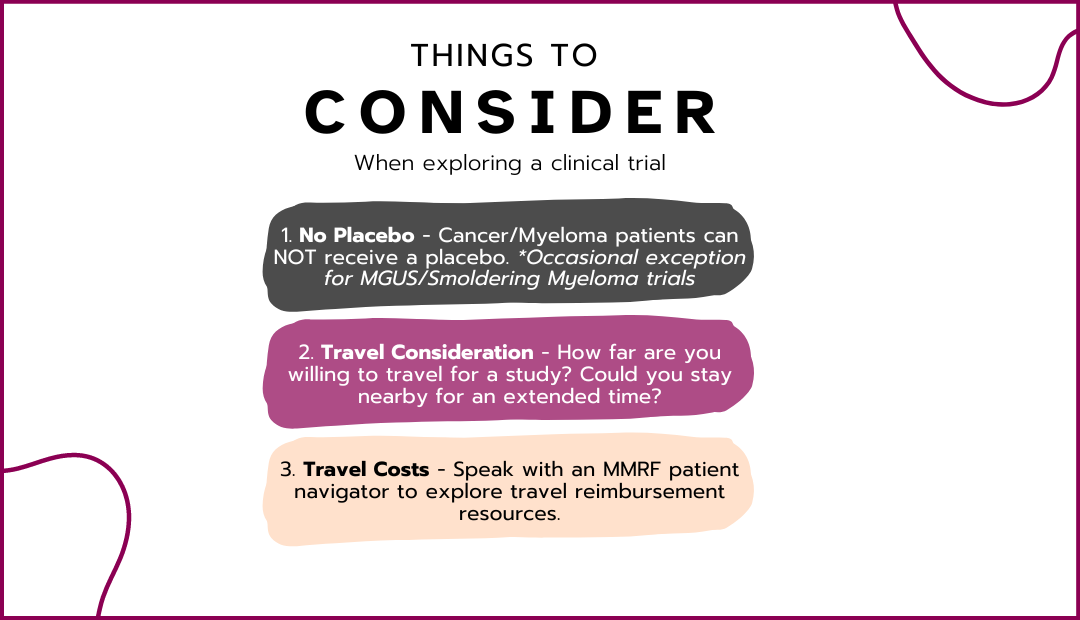Cevostamab Following CAR T Cell Therapy for RRMM
NCT05801939
Age 18 +
Sex Both
Phase Phase 2
Third Opinion Trial Synopsis
In this clinical study, researchers are exploring a new treatment approach for patients with a specific type of blood cancer. The study focuses on a combination of therapies that aim to improve patient outcomes and potentially offer a more effective treatment option. Here are some key details about the study:
- The study investigates a combination of existing therapies, which may enhance their effectiveness when used together.
- It includes a diverse group of participants, allowing researchers to gather data on how different individuals respond to the treatment.
- One unique aspect of this trial is its focus on personalized treatment plans, which are tailored to the individual needs of each patient.
- The study aims to assess not only the effectiveness of the treatment but also its safety and tolerability for patients.
- Researchers are using advanced monitoring techniques to track patient responses and adjust treatments as necessary.
Third Opinion AI Generated Synopsis
Trial Summary
This is a Phase 2, open-label, single-arm, single stage, single-institution study, with an initial safety run-in period. Potential participants with relapsed/refractory myeloma who are undergoing standard of care, commercially-available BCMA-directed CAR T cell therapy may be identified pre-CAR T cell infusion but are not consented and enrolled until at least 4-6 weeks after CAR T cell infusion, once recovered from acute toxicities. Note: the lymphodepleting chemotherapy and CAR T cell therapy is being administered as part of standard clinical practice and is not considered part of this protocol. Alternative lymphodepleting regimens other than fludarabine and cyclophosphamide (eg in the setting of fludarabine shortages) are acceptable. Cevostamab will be given as an IV infusion once every 3 weeks, starting roughly 10 weeks (day 70 +/- 4 days) post-CAR T cell infusion, with subjects planned to receive 8 cycles initially. Aiming to assess the impact of cevostamab consolidation post-BCMA CAR T cell therapy on rate of MRD-negative complete remission (CR) at 12 months.
This is a Phase 2, open-label, single-arm, single stage, single-institution study, with an initial safety run-in period. Potential participants with relapsed/refractory myeloma who are undergoing standard of care, commercially-available BCMA-directed CAR T cell therapy may be identified pre-CAR T cell infusion but are not consented and enrolled until at least 4-6 weeks after CAR T cell infusion, once recovered from acute toxicities. Note: the lymphodepleting chemotherapy and CAR T cell therapy is being administered as part of standard clinical practice and is not considered part of this protocol. Alternative lymphodepleting regimens other than fludarabine and cyclophosphamide (eg in the setting of fludarabine shortages) are acceptable. Cevostamab will be given as an IV infusion once every 3 weeks, starting roughly 10 weeks (day 70 +/- 4 days) post-CAR T cell infusion, with subjects planned to receive 8 cycles initially. Aiming to assess the impact of cevostamab consolidation post-BCMA CAR T cell therapy on rate of MRD-negative complete remission (CR) at 12 months.
from ClinicalTrials.gov
Locations & Contact
Fill out the form and to let the Multiple Myeloma Research Foundation know you are interested in this trial.
Contacts:

